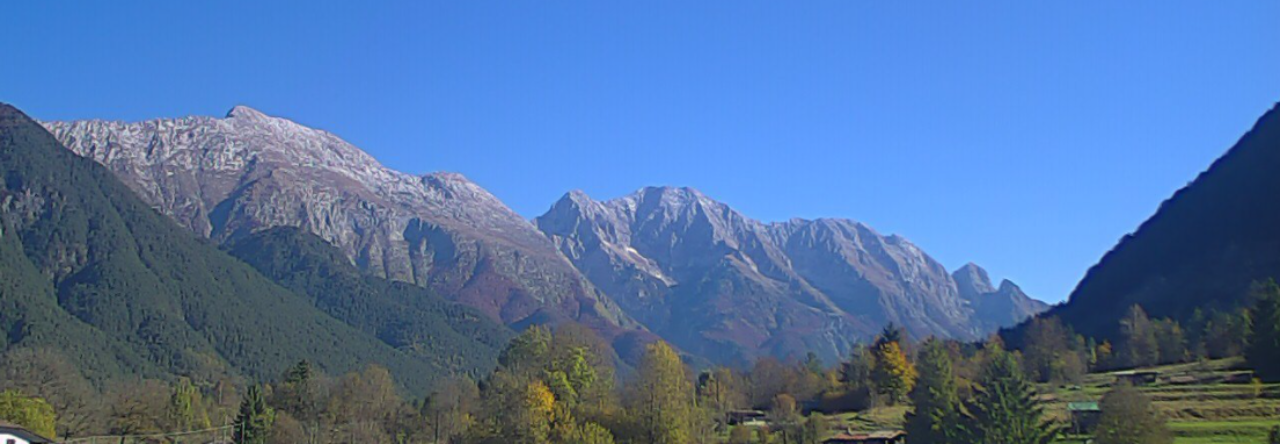In the impersonal form, the verbs always take the ending of the third person singular and, in the past, that of the neuter.
In Rezian the impersonal form of the verb is expressed both with the TO particle and with the reflexive SA.
Impersonal form with TO
- TO corresponds to the impersonal form of the Italian: ‘(it) + verb’.
To balaná = It snows;
To lïë = It rains;
To straše = It is scary;
To śalaní =It grows green;
To mi na plažá = I don’t like it;
To ghre nu ghrozoná = it goes and rumbles (you hear a clamour of footsteps and noises);
T’ë (<to ë) bilu tu-w jasanè, ko sa dilä kombuštïbel, ‘It was autumn, when you cut wood (fuel).
- The pronoun TO has the function of subject and can indicate, not only an object but an entire sentence:
Isí, to ë twej lïbre ‘this, it is your book’;
It is not possible, in Rezian, to elide the particle TO; example: isí, – ë twej lïbre ‘this, – is your book’; In English the sentence is correct, but in Resian it doesn’t make sense.
Isö, to ë töka rëkow ‘this, it is that what [he] said’.
The first TO is subject of the verb ‘is’. The second TÖ is the demonstrative ‘what’, has the function of subject: it has a neuter and joins the relative pronoun ‘that’. It is the same locution as the English: ‘ask me that what you want’ barima tö ka ti će(š).
Isö́ höanjë, t’ ë (< to ë) ma strüdilu ‘this [continous] walking has tired me [continuous], (it)’;
T’ë (<to ë) mi tëlo karë nagha tïmpä, prit nu-ku dojtet… ‘It took me a long time to reach…’
- The impersonal form TO + verb (in the past tense, in the neuter) espresses the dual subject of the 3rd person.
Onda nur biw ta ravanške patalen anu ta biske päs, anu t’ë bilu šlu dëlät kombuštïbel won Püsti Ghöst;[t’ë bilu tu-w jasané, ko sa dilä kombuštïbel].
‘Once upon a time there was a rooster from Ravanza and a dog from Bila/San Giorgio, and (both of them) they were gone to cut wood for fuel up in Pusti Gost; [‘it was autumn, when you cut wood’].
Impersonal form (with the reflexive particle) SA
Another modality of the impersonal form involves the use of the reflexive particle SA. This form is not present in Slavic languages, instead it appears in Friulian. The SA particle precedes the verb.
Sa ghre won ‘you go up’; sa ji wsë ‘ you eat everything’; sa dílä kombuštïbel ‘you cut wood (fuel)’;
With negation
Sa na ghre won ‘don’t go up’, sa na ji wsë ‘you don’t eat everything’; sa na dílä kombuštïbilä ‘you don’t cut wood’; sa na pláćä ‘you don’t pay [it’s free]’.
